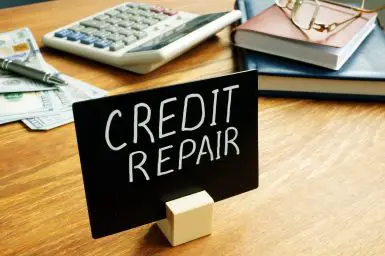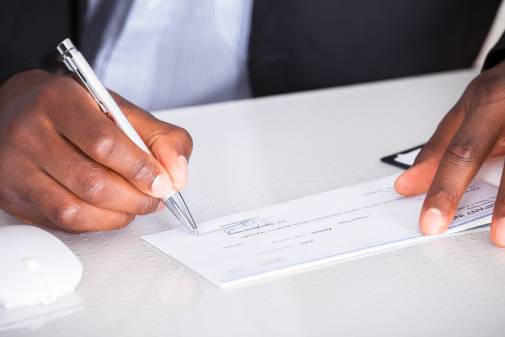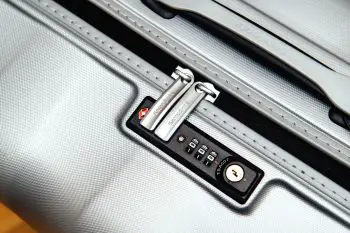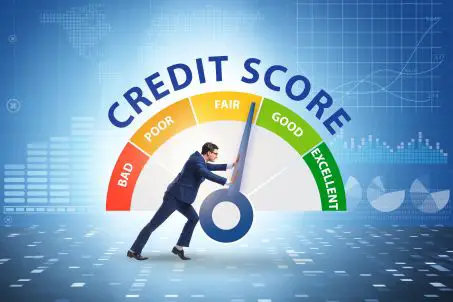
CommonCentsMom.com is advertiser-supported: we may earn compensation from the products and offers mentioned in this article. However, any expressed opinions are our own and aren't influenced by compensation. The contents of the CommonCentsMom.com website, such as text, graphics, images, and other material contained on this site (“Content”) are for informational purposes only. The Content is not intended to be a substitute for professional financial or legal advice. Always seek the advice of your Financial Advisor, CPA and Lawyer with any questions you may have regarding your situation. Never disregard professional advice or delay in seeking it because of something you have read on this website!
Credit repair is a process by which a person can improve their credit score. A good credit score is important for a variety of reasons, including being able to get affordable loans, securing a mortgage, and obtaining insurance.
There are a number of steps that can be taken to improve a credit score, and many resources are available to help. If you are interested in improving your credit score, consider contacting a credit repair organization or consulting with a credit specialist.
There are also many online tools that can be used to help monitor your progress and make adjustments as needed.
How do I improve my credit score?
There are a number of steps that can be taken to improve your credit score. Some of the most common include paying your bills on time, maintaining a good credit history, and using credit wisely.
To improve your credit score, it is important to start by understanding your current score. You can get a free credit report from each of the three major credit reporting agencies (TransUnion, Experian, and Equifax) each year.
This report will include information about your credit history, including the types of loans that you have used and the terms of those loans. Once you have a good understanding of your current score, you can begin to make changes to improve it.
One way to improve your score is to pay your bills on time. If you have missed any payments, contact your creditors immediately to resolve the issue. Also, make sure that all of your loans are in good standing and that you are not overspending on luxury items or unnecessary expenses.
Another way to improve your score is to maintain a good credit history. This includes avoiding any negative information in your reports and having a positive history with all of your creditors. To ensure a good credit history, make sure that you always pay your bills on time and keep your credit utilization below 30%.
Finally, you should use credit wisely. This means using credit sparingly and paying off your debts as quickly as possible. If you have trouble paying your bills, speak to a financial advisor about possible solutions.

What does a good credit score look like?
A good credit score is typically between 680 and 739. A score of 680 is considered excellent, and a score of 739 is considered perfect.
A good credit score is important for a variety of reasons, including being able to get affordable loans, securing a mortgage, and obtaining insurance. If you are interested in improving your credit score, consider contacting a credit repair organization or consulting with a credit specialist.
To make your credit score more accurate, be sure to keep updated on your credit report and make sure that all of your information is accurate and up to date. You can also use online tools to monitor your progress and make adjustments as needed.
That way, you can make sure that your credit score is as good as it can be and get the best possible deal on loans, insurance, and other important financial products.
What if I have bad credit?
If you have bad credit, there are a number of things that you can do to improve your score. First, make sure that you are paying your bills on time and that all of your debts are in good standing.
Also, try to get a loan that has a low interest rate and pay it off as quickly as possible. If you have any other negative information in your credit report, speak to a financial advisor about possible solutions.
If you are unable to improve your score through traditional means, consider using an online credit repair tool. These tools can help you correct any errors in your report and improve your score.
Once you get your score improved, be sure to keep updated on your progress so that you can continue to make positive changes.
How can I improve my credit score if I don’t have any credit?
If you don’t have any credit, there are a number of things that you can do to improve your score. First, make sure that you are doing everything that you can to improve your credit history.
This includes paying your bills on time and maintaining a good credit history. Next, try to get a loan from a reputable lender. Loans from reputable lenders typically have lower interest rates than loans from non-reputable lenders.
Finally, use credit wisely and only borrow what you need. If you cannot pay back your loan, contact the lender immediately to resolve the issue. If all of these measures fail, consider using an online credit repair tool.
These tools can help you correct any errors in your report and improve your score. Once you get your score improved, be sure to keep updated on your progress so that you can continue to make positive changes.
How does my credit score affect my ability to get a loan?
A good credit score is important for a variety of reasons, including being able to get affordable loans, securing a mortgage, and obtaining insurance. If you have bad credit, your score may be lower than someone with good credit.
This can impact your ability to get a loan. Lenders may require that you have a credit score of at least 620 before they will approve you for a loan. If your credit score is lower than this, you may be required to take additional steps, such as getting a guarantor or co-signer on the loan.
If you are interested in obtaining a loan, it is important to keep updated on your progress and make sure that all of your information is accurate and up to date. You can also use online tools to monitor your progress and make adjustments as needed.
That way, you can make sure that your credit score is as good as it can be and get the best possible deal on loans, insurance, and other important financial products.







